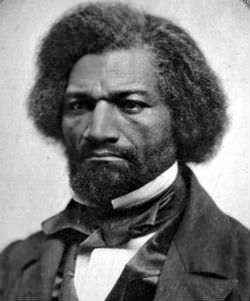Libertarianism, the Anti-Slavery Movement, and Black History Month
Classical liberalism and the fight for racial equality.

At The Huffington Post, David Boaz has a sharp column tracing the key role that libertarian and classical liberal ideas played in the abolition of American slavery and the struggle for racial equality. As Boaz puts it, "black history is American history, a story of oppression and liberation rooted in the libertarian idea of individual rights." He explains:
Some people think libertarians only care about taxes and regulations. But I was asked not long ago, what's the most important libertarian accomplishment in history? I said, "the abolition of slavery."
The greatest libertarian crusade in history was the effort to abolish chattel slavery, culminating in the nineteenth-century abolitionist movement and the heroic Underground Railroad. It's no accident that abolitionism emerged out of the ferment of the Industrial Revolution and the American Revolution.
How could Americans proclaim that "all men are created equal . . . endowed by their Creator with certain unalienable rights," without noticing that they themselves were holding other men and women in bondage? They could not, of course. The ideas of the American Revolution -- individualism, natural rights and free markets -- led logically to agitation for the extension of civil and political rights to those who had been excluded from liberty, as they were from power -- notably slaves, serfs and women.
The great abolitionist leader Frederick Douglass offers a case in point. Throughout his long career as a writer, editor, and orator, Douglass routinely championed the classical liberal principles of self-ownership, individualism, and free labor. What's more, he railed against slavery's defenders for violating both the spirit of the American Revolution and the text of America's founding documents. "You are a man and so am I," Douglass wrote in his famous 1848 letter to his old master. "In leaving you, I took nothing but what belonged to me, and in no way lessened your means for obtaining an honest living." According to Douglass, his escape from bondage was not just an act of self-preservation—it was a fundamental affirmation of his unalienable natural rights. "Your faculties remained yours," he declared, "and mine became useful to their rightful owner."
For more on the history of classical liberalism and anti-slavery, check out "The Trouble with Thomas Jefferson" and "Frederick Douglass, Classical Liberal."
Click below to watch David Boaz discuss his new book The Libertarian Mind with Reason TV.


Show Comments (282)